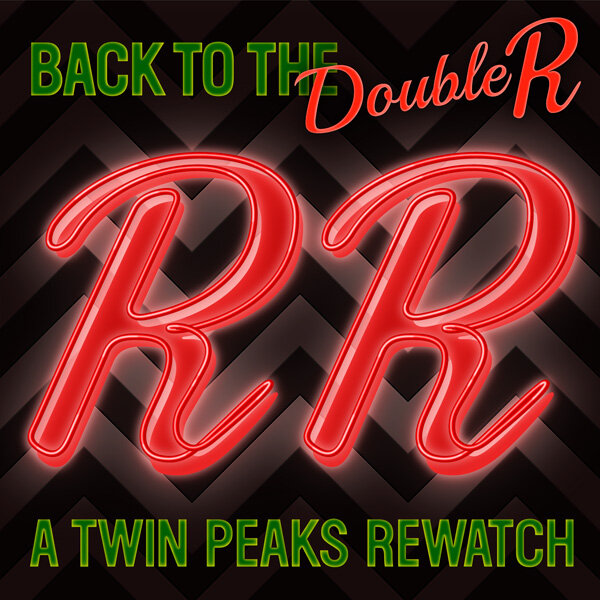Between Two Worlds: My Favorite Scene
It should come as no great surprise to regular listeners of the podcast that my favorite scene from the first half of classic Twin Peaks is Cooper’s dream in what we’re calling the third episode (Zen, or the Skill to Catch a Killer). Much of this sequence was originally created as an ending for the Pilot for broadcast in Europe, where it was shown as stand-alone film. David Lynch repurposed the material for this episode as clue-laden dream with great effect.
What makes this scene really stand out for me is that this is the moment in which it becomes clear that there really is something going on with the Laura Palmer case that defies normal explanation and wouldn’t happen in an ordinary crime drama TV show, even one with really quirky characters and strange pacing. While Sarah’s visions in the previous episode started us down that road, with Cooper’s dream of the Red Room, we’ve arrived at a truly unexpected destination. The scene is incredibly surreal and genuinely feels like a dream (or at least, like some of my more troubling dreams). As many times as I’ve seen it, it still gives me the chills when Mike recites the “fire walk with me” poem. And, each time I see it, I always wonder about the closing lines. Is it “one chants out between two worlds, fire walk with me?” The implication here would be that someone (BOB?) is chanting this phrase between the ordinary world and his own. I believe the more common interpretation of the line is “one chance out between two worlds,” as in, BOB gets only one chance to leave where he’s from and come to our world. I suppose if one could get a hold of the script, we might be able to answer this question. In the absence of this though, it’s really hard to say, and the ambiguity is intriguing.
The decision to make everyone do the scene in the Red Room backwards and then reverse the footage gives the Red Room residents’ speech and actions a jerky and totally unnatural feeling that is disquieting and would have been even more so to an audience in that era who had never seen anything remotely like this on television. It really feels like something that never could (or should) happen in our world. It’s a powerful and haunting sequence that could stand alone as a short art film, completely independent of any context, and still feel compelling. Reportedly, this scene was not even part of Lynch’s original conception (or shooting script) for the episode. Rather, it just popped into his head and he decided to make it real, much the surprise of the cast and crew. Some people find Lynch’s style frustrating or pretentious, but I think even most of these detractors would have to admit that no one else working in mainstream film or television would have veered into this territory at the time this was made. That the idea for this scene just suddenly hit Lynch out of the blue, and he decided to run with it on short notice and got this result, makes it a perfect example of his modus operandi. It’s part of why I think he’s something of a genius.
This sequence also contains a couple of the repeating images and themes that are important to the overall impact and meaning of Twin Peaks—the shot of Sarah running down the stairs in slow motion looking for Laura with that ominous fan in the background is a striking image, and her slowed-down voice calling out desperately for Laura will echo all the way into final episode of the third season. The flickering light effect recalls Cooper’s examination of Laura’s body in the pilot, and we also hear the buzz and crackle of electricity that features so prominently as a motif in the show.
Cooper wakes from this troubling and strange vision and, in true Twin Peaks style, we end the episode with a moment of humor. Cooper’s normally immaculately styled hair is folded over and standing nearly straight up as he wakes from his dream to call Sheriff Truman, Badalamenti’s amazing score still playing in his head and bleeding from the dream into the waking world. This kind of juxtaposition of strange horror and laughs is quintessential David Lynch. It’s a perfect ending to what I consider a perfect episode of the show.


